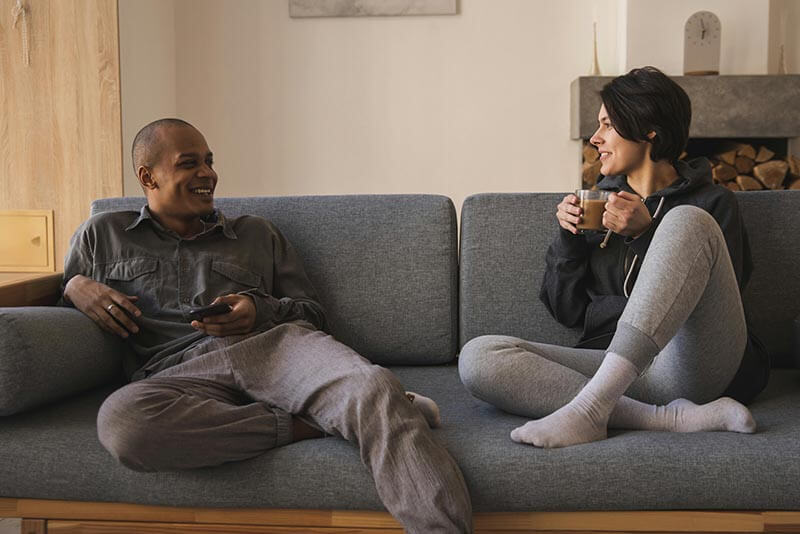
I don’t know the statistics, but I’m guessing that “Communication Issues” might well be at least near the top of the list of the most common issues clients bring to The Relationships Service (TRS) counselling space. They may or may not already realise that finding different ways of communicating may help them connect or reconnect with someone, following a period of breakdown or near-breakdown of their communication. Here are a few questions to ask yourself in this relationship context (the relationship could be with a partner, parent, sibling, friend, colleague – any significant human-to-human relationship you may have):
- Do you spend a lot of your time arguing?
- Do you tend to blame each other for whatever’s going wrong? If so, does blaming work for you?
- Do the arguments follow a pattern e.g. a question like “Have you put the bins out?” or a statement such as “You never listen,” or “You’re always thinking about yourself. You’re so selfish.”
- Does the bickering escalate into major rows, where you say things you later regret, that leave both/all of you unhappy, frustrated and wondering how much more you can put up with?
- After the row, do you shut down, and give each “the silent treatment” for maybe hours, days, or even weeks on end?
- On the other hand, do you remember a time when you felt really heard and understood by someone – your partner or anyone else? If so, can you recall how that felt?
- Can you imagine what it could be like to regain that feeling of being heard and understood – by your partner/friend/parent/sibling manager – whoever it is who has been ignoring you, misunderstanding you, or you feel you cannot get through to?
- In the family context, do your children (if applicable) witness your arguments?
- What kind of relationship model would you like to be modelling for your child(ren) for when they grow up and form their own relationships?
My guess is that at least one of these questions might be ringing bells for you. If you recognise that such questions are worth addressing, in order to achieve a more harmonious home environment, then you could begin to experiment by trying different ways of communicating e.g. using a friendlier tone of voice, showing the other person that you are interested in them, what they’re saying and/or acknowledging what might be a different, though valid point of view. That sounds quite simple/straightforward/sensible, doesn’t it? However, we know (don’t we?) that changing what might be habits of a lifetime, can be very challenging.
With every good intention, we might have tried to change our communication (or non-communication) style, but it may not have worked. And what happens? We go back to default – what we and that other person are used to. So, even though we know that our familiar style doesn’t work (i.e. doesn’t achieve the result we want), there’s something both weirdly comforting as well as uncomfortable about that familiarity. Would you agree?
Yes, indeed, it’s a challenge to break out of those unhelpful cycles we find ourselves in. We human beings are creatures of habit, aren’t we? So, maybe a bit of help might be needed. A few sessions of relationship counselling could give you the time and space to consider what’s possible to change (is achievable), as well as what might not be possible (perhaps unachievable). You’ll have the opportunity to try out ways of listening and responding that might well have different – hopefully more rewarding – outcomes than the ones you’ve been experiencing on a regular basis.
If that makes sense to you, how about contacting us on 0300 003 2324 (or fill in the contact form on this website to arrange an Initial Assessment appointment where a trained counsellor will – in collaboration with you – assess whether TRS is the right agency for the issues you’re bringing, or whether you might require some other kind of help.
Another important question for you to ask yourself is, “Am I really invested in changing the way I communicate with my partner/parent/child/friend/colleague/manager?”
If the answer is “yes”, you are already on the way to improving whatever relationship you may be aspiring to improve.
However, you might be thinking “Yes, but …”. Of course. There are always “ifs” and “buts,” right? Well, here’s something else to think about: “If you do what you always do, you get what you always get.”[1]
Communication is a very broad subject and will involve learning new skills, step by step, and could be well worth the investment – for you to discover for yourself/selves?
Are you ready?
[1] This quote has been attributed to Henry Ford, Albert Einstein and Tony Robbins (and probably others)!
